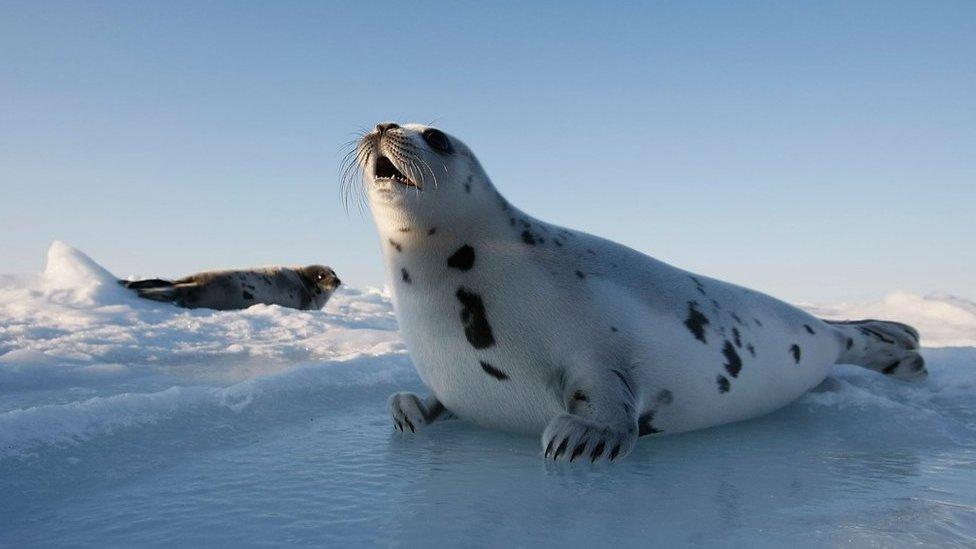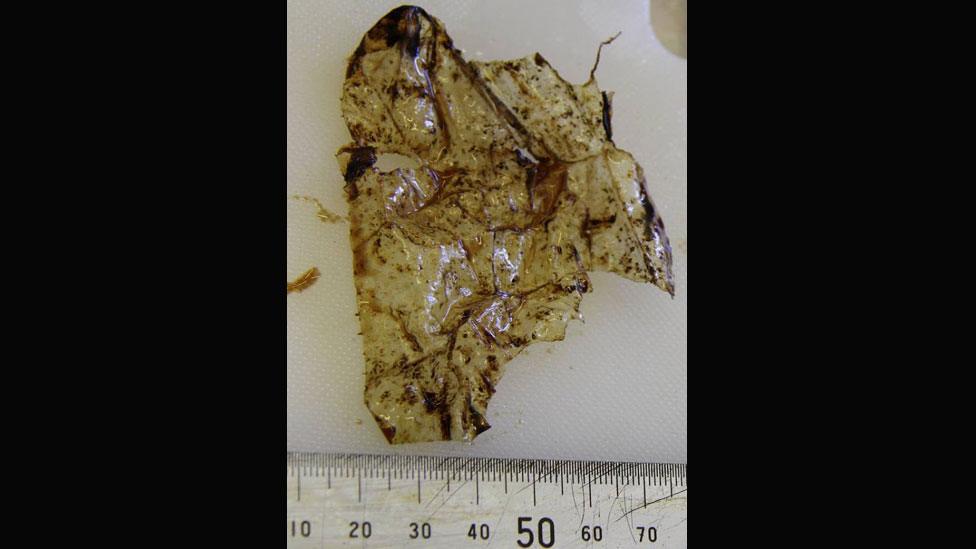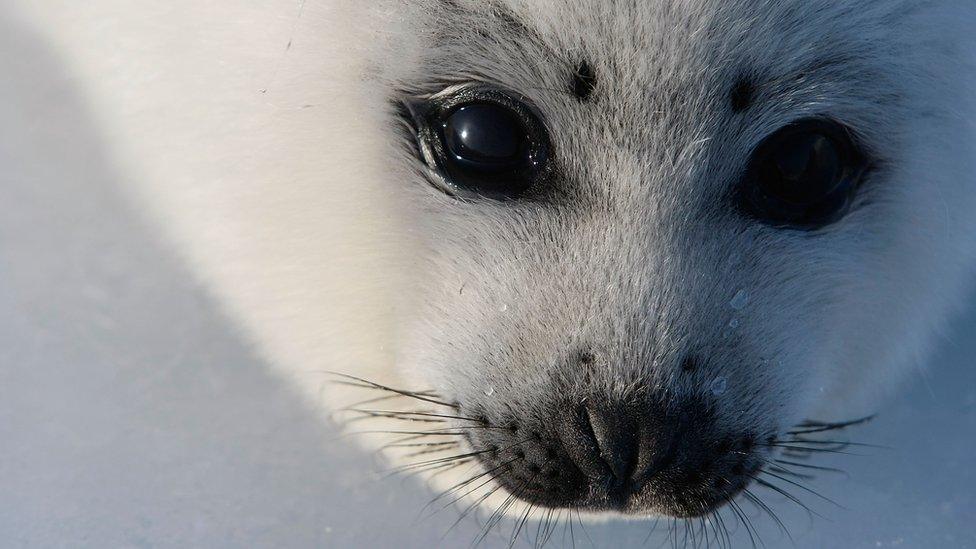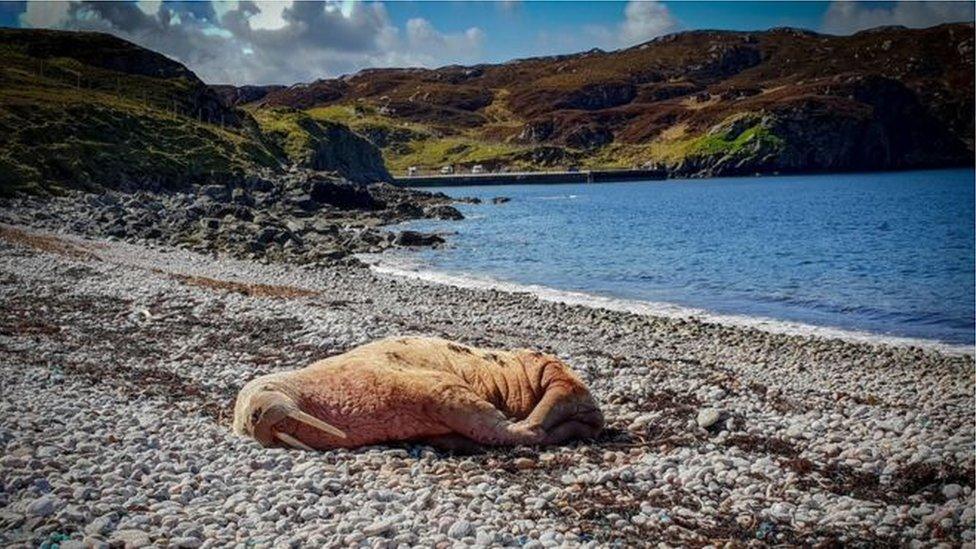Plastic fragment found stuck in dead harp seal's stomach
- Published

Harp seals are usually found in the Arctic Ocean and North Atlantic
A small piece of plastic may have played a part in the death of a young harp seal found washed up on Skye, say scientists who examined the animal.
The harp seal is an Arctic animal and a rare visitor to Scotland.
The 6cm square fragment of plastic was found during a necropsy carried out at the Scottish Marine Animal Stranding Scheme's Inverness lab.
It had been stuck for some time in a part of the animal's stomach which empties into the intestines.

The piece of plastic found stuck inside part of the seal's stomach
Scientists who examined the seal said the plastic potentially impaired the normal functioning of the stomach emptying.
It may also have caused other health problems that the seal had suffered, including in the upper part of its gut.
'Incredibly rare'
The harp seal was under a year old and not well nourished.
It is not clear why the pup ended up on Skye, but scientists said its appearance may be associated with global climate warming affecting sea ice cover.

Marine pollution was recently highlighted by images showing stags tangled in lost fishing gear
The Scottish Marine Animal Stranding Scheme said: "Seeing the plastic lodged in the stomach was yet another reminder of the impact of plastic pollution in the marine environment.
"Death due to plastic ingestion appears thankfully incredibly rare in cetaceans and seals, but in this case it is plausible this hungry pup mistook this small bit of floating plastic for food.
"Once in the stomach, it would not be broken down, and became partially lodged in the narrow opening into the intestine.
"A healthy, fit, pup would probably have been able to safely manage ingesting a fragment of plastic this size, but in an already compromised animal it could have been influential in its death."
The scheme is to run additional tests on the seal, adding: "For a weakened seal pup such as this, even a piece of plastic the size of a sweet wrapper is potentially fatal."

Seals are vulnerable to the risk of ingesting small pieces of plastic, say scientists
The threat of plastic and other types of marine pollution was recently highlighted by the release of images showing red deer stags that had become tangled in lost fishing gear while foraging on shorelines on Rum.
'Shocking example'
Last summer, scientists said some of the world's deepest living sea creatures had been found to have eaten microscopic pieces of plastic waste.
Researchers at the Scottish Association for Marine Science (SAMS) in Oban sampled starfish and snails from the Rockall Trough off the Western Isles.
Tiny pieces of plastic were found in 48% of the sample animals that live more than 2,000m (6,561.8ft) down.
WWF Scotland said the harp seal's death underlined the terrible effects of marine pollution.
Acting director Dr Sam Gardner said: "The death of this young harp seal, a rare visitor to Scotland, so soon after the images of a stag with fishing nets wrapped around its antlers, is yet another powerful reminder of the damage plastics is having on our wildlife in the oceans and on land.
"This is another shocking example of why we all need to take greater care in how we use and dispose of plastics."

Scotland's Arctic visitors

Arctic walrus at Kinlochbervie in Sutherland
The harp seal pup is one of a number of Arctic animals that have been appearing on Scottish coastlines.
Bearded seals have been spotted in Harris and Orkney.
And an Arctic walrus has been seen at various locations on Scotland's northern and western shores since March.
After first appearing in Orkney, the animal has turned up on Skye, Lewis and parts of the Sutherland and Caithness coast.